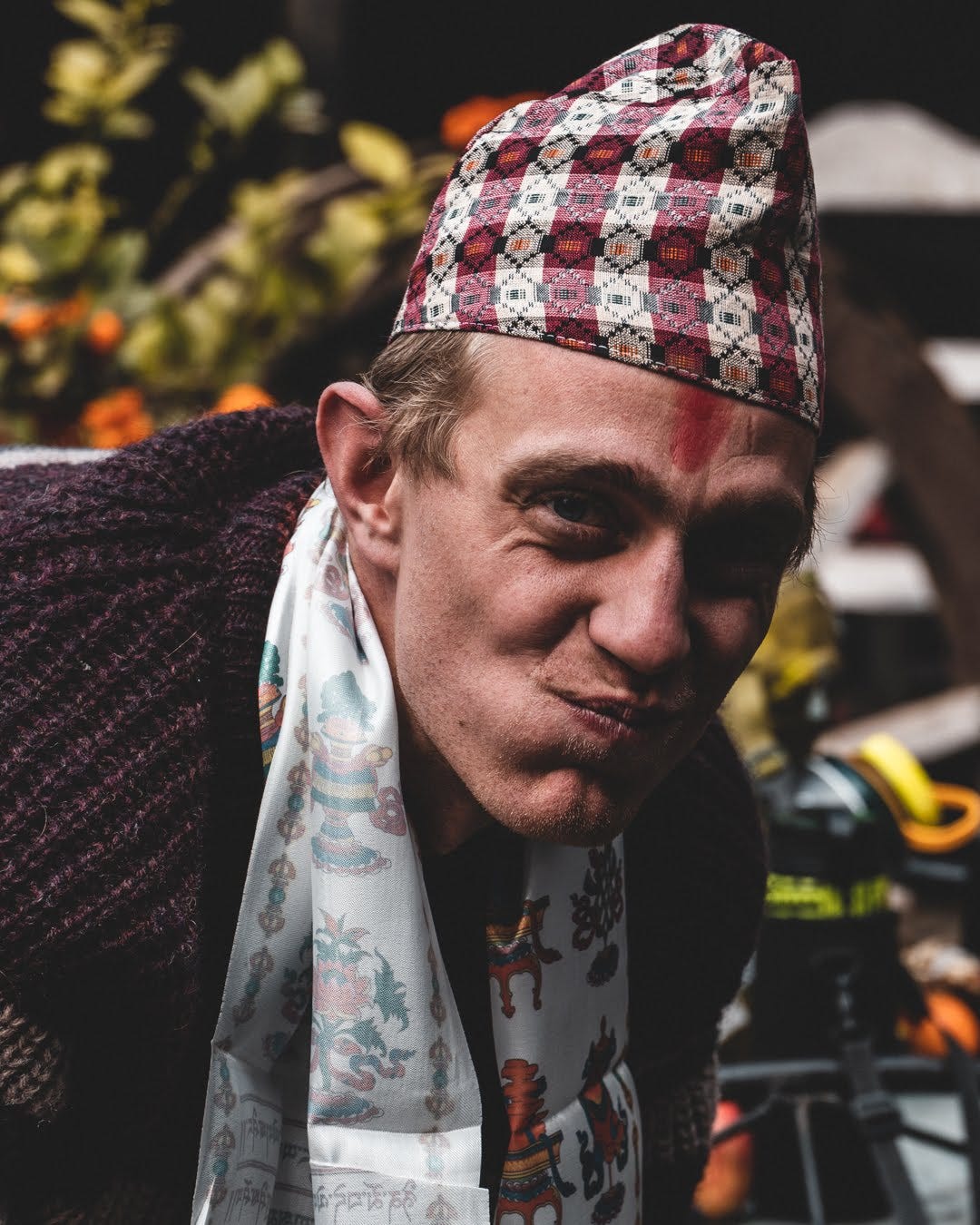*Hello hello everyone! I’ve decided to do something a bit different today, in the spirit of the Medium Writer’s Challenge! This is my entry for the category of Re-entry. It’s a deeply personal story, about the grief I experienced after my evacuation from Nepal. Let me know what you think in the comments!*
“Have you been to China? Do you feel sick?”
Two mask-less police officers in Boston International were asking a line of returnees those questions as a blended line of people waited their turn to hear them. It was March 22nd, 2020, the height of covid confusion, and my 27th birthday. The world I was re-entering was unrecognizable, and most of me hadn’t returned.
“Here’s my passport. I haven’t been to China. No, I don’t feel sick.”
When Daedalus the inventor was looking for a way to contain the Minotaur, he drew inspiration from watching princess Ariadne perform the dance of cranes. In the sand beneath her, he saw a pattern of spirals that would solve his problem. Daedalus built the Labyrinth that caused so much Athenian suffering from the outline Ariadne’s dance had left behind.
When the time came for prince Theseus to enter the Labyrinth and kill the Minotaur, ending the cycle of suffering for his people, Ariadne gave him a ball of golden thread so that he could find his way out of the labyrinth after the battle. In the Middle English telling of this story, the name of that ball of thread was “clew.” This is where we get the Modern English word “clue.”
Each of us has the power to create labyrinths, and each of us has the power to lead the way out of them.
In January 2020, I shipped out to join Peace Corps Nepal. I’d chosen Nepal to answer a burning question: as someone who comes from the most individually-minded country on earth, what would it be like to live in a connected, community-minded culture? I started to understand the answer after seven weeks, covid hit, and my entire cohort and I were separated from our new families, routed through three international airports, and tossed into the pandemic.
That’s when I entered the labyrinth of my own making. I had no idea how to come home.
When we were ordered to evacuate, Nepal had one confirmed case. Later, we knew this was a result of limited testing, not a lack of viral presence. Yet at the time, it felt ridiculous. For God's sake, we were living in villages in the hills, and they were sending us back into the biggest outbreak in the world?
It wasn’t just us. Peace Corps evacuated everyone, for the first time in the organization’s 59-year history. More than seven thousand volunteers from 77 countries were sent home.
More than a year later, when anyone asks me what was living in Nepal like? I still freeze, no more able to condense the experience into a few words than I can accurately describe the sensation of chewing gum in space. Rather than trying to describe the feeling of laughing over cultural misunderstandings as I squat and attempt laundry by hand with my Nepali father as the sun sets over the Himalayas, I always smile and exclaim “it was amazing!” hoping I won’t be asked to elaborate, to profane the sacred heart-space I’ve built out of the taste of Didi’s Dal Bhaat, Buwaa’s odd questions, and Dai’s deep, unhindered laugh by trying to describe it to someone whose entire frame of reference of the “third world” is seeing endless pictures of children who don’t have enough food.
Countless conversations before my departure and after my forced return have taught me that:
The average American has no idea where Nepal is
They know “that’s where Everest is, right?”
No, I haven’t been to China. No, I don’t feel sick.
I finally made it to Denver, and my new girlfriend picked me up at the airport. We’d met just a month before I departed for what was supposed to be a two-year commitment, felt an instant connection, and barely knew each other. She’d agreed to quarantine with me in a hotel for two weeks, to keep our families safe.
We embraced, her jumping and wrapping herself around me, the two of us standing there hoping to freeze that moment of safety amidst the modern world’s most uncertain time. She drove us to the hotel and we checked in and made love slowly, each so glad of the other’s momentarily safe embrace that we wept.
Every time I revisit this memory, call up in my mind’s eye the texture of her tear-stained face under the window’s moonlight, I wish that moment was the end of the story. I want to write “happily ever after” and move on, tell you that the players ascended to heaven right then and there, that I was strong enough to withstand the gale-force of her desperate desire to be loved.
That was never going to be our story. She’d experienced abandonment and trauma as a child, and the death of a spouse before I came along. I was a wisp of wind, having convinced myself that I needed to stand alone in the world years before I met her. That hotel room pressure-cooked our new relationship into oblivion. There was nowhere to go, just 180 square feet of our collected traumas and neurosis.
I hated the unrecognizable world that I’d been evicted into, and in my despair convinced myself that the only solution for all this angst was to return to Nepal (It seemed possible back then, the Peace Corps had projected that we’d be back in service by late summer/fall 2020, naively believing that covid would pass, as we all hoped in those early days). She couldn’t understand why I wanted to leave again, why I was putting distance between us with my walls. Her attempts to know me deeply left me curled up and shrieking in the spotlight, begging her to leave me back in the dark.
No, I don’t feel sick. Just terrified of what was once my home. No, I haven’t been to China, just Nepal.
Watching the breadth of the Himalayan sky transform into an un-leave-able 10-by-18 hotel room via a Qatar Airways flight is a magic trick I never wish to see again. I fought the trick with everything, spending every spare moment in that hotel room within myself, back in Nepal.
“He was shaken by the overwhelming revelation that the headlong race between his misfortunes and his dreams was at that moment racing the finish line… ‘Damnit!’ he sighed. ‘How will I ever get out of this labyrinth?’”
-Gabriel Garcia Marquez, The General In His Labyrinth
Nepal is home to the hardest soft people I’ve ever met, a hostile land of day-to-day challenges that the average American cannot imagine. Less than half of the population is literate, and the average laborer earns between $250-$300 a year. A full third of Nepal’s GDP comes from people who have left the country, sending money back from their work abroad.
Unlike the average American, their challenges only harden them on the outside. They are tough but not mean. They do not have only themselves to rely on, like those of us on the hamster wheel of the American dream. They have each other. The last stanza of the Nepali National Anthem, Hundreds of Flowers, when translated into English, reads: “Diverse races, languages, religions, and cultures of incredible sprawl, this progressive nation of ours, all hail Nepal!” rendering our “we have a flag that stuck around in a warzone” song a sad comparison.
518 days later, I’m still trying to come home.













Share this post